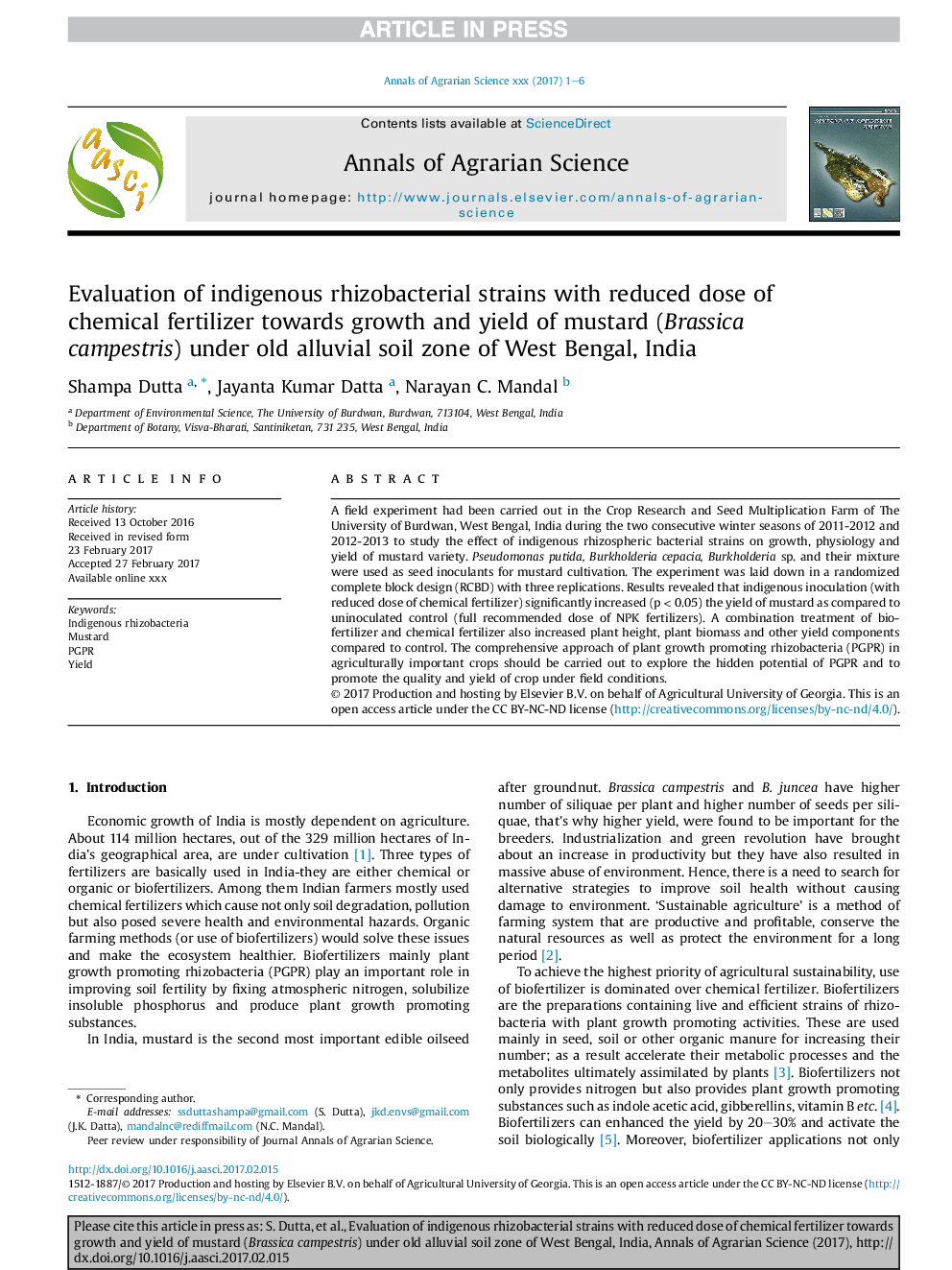| Article ID | Journal | Published Year | Pages | File Type |
|---|---|---|---|---|
| 7228574 | Annals of Agrarian Science | 2017 | 6 Pages |
Abstract
A field experiment had been carried out in the Crop Research and Seed Multiplication Farm of The University of Burdwan, West Bengal, India during the two consecutive winter seasons of 2011-2012 and 2012-2013 to study the effect of indigenous rhizospheric bacterial strains on growth, physiology and yield of mustard variety. Pseudomonas putida, Burkholderia cepacia, Burkholderia sp. and their mixture were used as seed inoculants for mustard cultivation. The experiment was laid down in a randomized complete block design (RCBD) with three replications. Results revealed that indigenous inoculation (with reduced dose of chemical fertilizer) significantly increased (p < 0.05) the yield of mustard as compared to uninoculated control (full recommended dose of NPK fertilizers). A combination treatment of biofertilizer and chemical fertilizer also increased plant height, plant biomass and other yield components compared to control. The comprehensive approach of plant growth promoting rhizobacteria (PGPR) in agriculturally important crops should be carried out to explore the hidden potential of PGPR and to promote the quality and yield of crop under field conditions.
Related Topics
Physical Sciences and Engineering
Engineering
Biomedical Engineering
Authors
Shampa Dutta, Jayanta Kumar Datta, Narayan C. Mandal,
